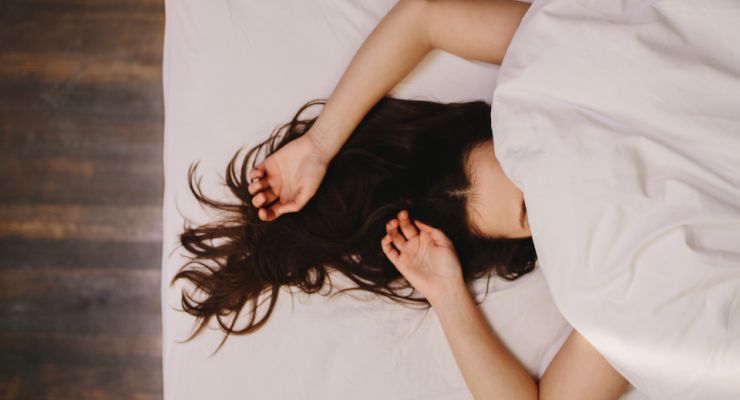Even if you don’t have trouble sleeping, there are so many ways to improve this nightly experience and capitalize on every moment of rest. After all, sleep fuels you for the day ahead, and if you are low on gas due to poor rest, you are more likely to fill up on other, unhealthy fuels that poison your tank, such as candy, chips, soda, and energy drinks. Here are a few ways to maximize the quantity and quality of the hours you spend sleeping.
Comfortable Mattress and Pillow
Though it may seem like an obvious key to better sleep, many people go too long without replacing their mattress and continue to sleep on a bed that is way past its prime. If you’ve had your bed for more than 7 years, you notice that it has visible wear and tear, or you sleep better on other mattresses (such as at a hotel), it is likely time to purchase a new one. You spend a third of your life sleeping; a nice bed is clearly worth the investment. Be sure to try it in person and purchase a mattress that works for you and your partner.
Don’t forget about your pillow, either! Make sure to get a high-quality pillow that matches up with your sleeping position.
High-Quality Sheets and Bedding
After splurging for a new mattress, it could be tempting to skimp in this area. Afterall, bedding isn’t that important if you have an excellent bed, right? Wrong. Cheap, scratchy sheets can ruin your sleep, especially if they trap heat and have started to pill or get holes. Invest in bedding that suits the season and have a second set on hand so that you can wash the sheets on your bed as needed. Try to find natural materials such as cotton, wool, silk, bamboo, and linen, instead of heat and moisture-trapping fabrics like polyester and synthetic satin.
Appropriate Lighting
Having a dark room is essential for a good night’s sleep. However, you may think that your room is sufficiently dark but still experience slight interruptions as you sleep due to blinking lights or thin curtains that don’t block street lights. Cover your windows with blackout curtains and remove any electronics with flashing lights from the room or cover them with blackout stickers. The darker your room, the more restful sleep you will have.
Keep in mind; there is no reason to have bright, fluorescent lighting in your bedroom. This only serves to interfere with your natural clock, strain your eyes, and tell your brain that it isn’t time for sleep. Change out lightbulbs when possible or use lamps with warm bulbs for a warmer, less intrusive lighting option.
Quiet Environment/White noise
While a quiet environment is often ideal for many people, others need white noise to drown out the deafening silence and give them something to listen to other than noises from outside or their partner’s breathing that is just a little too loud. Consider a white noise machine or set up a fan in your room. If you get cold at night, you can just aim it at the wall.
Organized room
Making your bed first thing in the morning and keeping your clothes picked up is a great way to start the day and help put you in the right mindset. When your bedroom is a happy, clean, calm, and organized place to be, you will feel more mentally settled and prepared to unwind for sleep.
Relaxing Scent
Lavender has been shown to be an effective calming scent. It can help fight insomnia, make you drowsy, and even make you more relaxed. Burn a lavender candle or diffuse lavender oil before bed. This will also help signal to your brain that it is time to start preparing for sleep, as scents can be very helpful for brain training and habit forming.
Cool Temperature
Crank that thermostat down a few degrees and leave your bedroom between 60-67 degrees. This may be a little easier to accomplish in the winter since it only involves turning the heat down. In the summer, try using a fan along with air conditioning to help bring the temperature to a more comfortable level without running up your electric bill. This temperature is the sweet spot for a restful night of uninterrupted sleep and will help keep you from waking up because you are either freezing or boiling under the covers.
No Distractions
One of the main detriments to a good night of sleep is your ever-present smartphone. When you are on it right before bed and first thing in the morning, the blue light can really start to affect your sleep cycles and interfere with the quality of your rest. If possible, plug it in in the kitchen or living room and use an old fashion alarm clock to wake you up. If this just isn’t feasible, at least set it to “do not disturb” so that you aren’t being awxoken by vibrations from midnight texts and notifications.
-Susan Patterson

